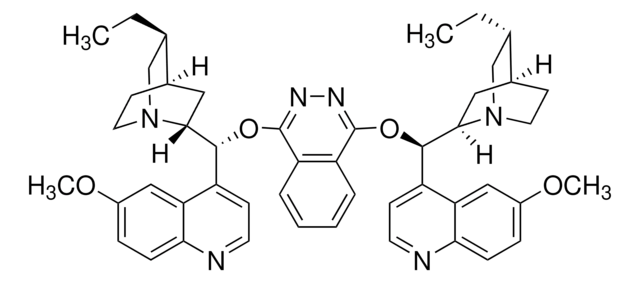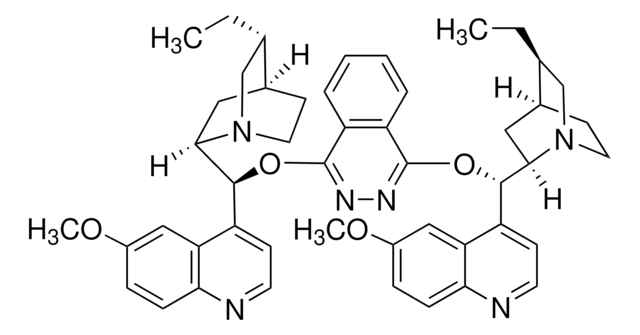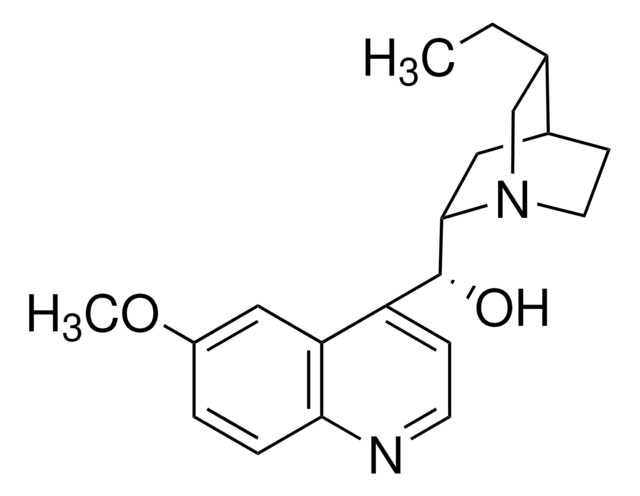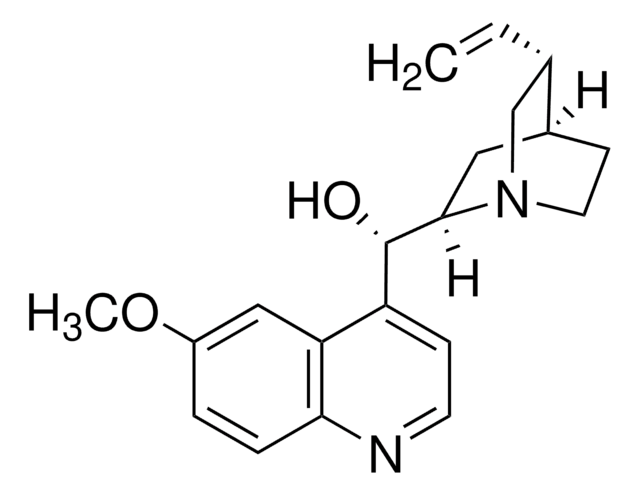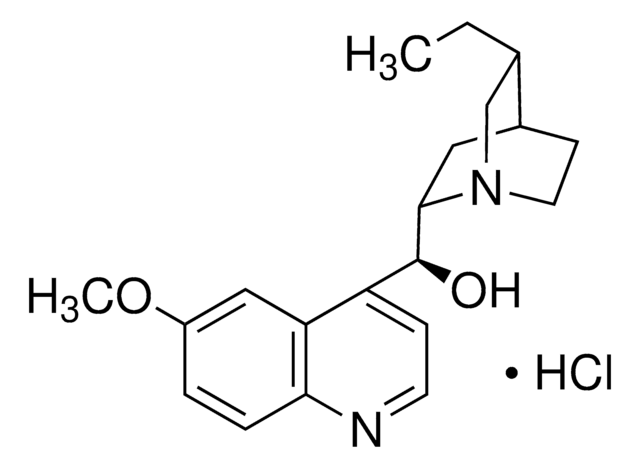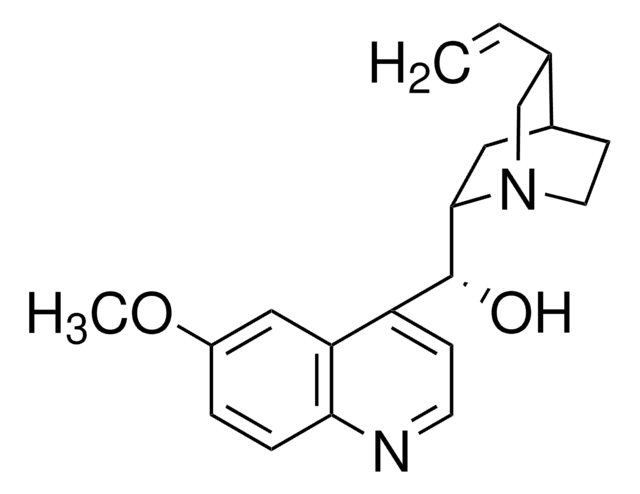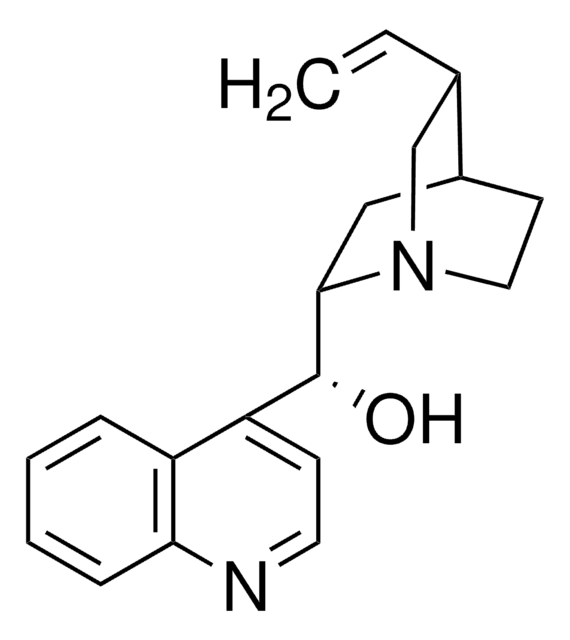359343
Hydroquinidine
95%
Synonym(s):
(9S)-10,11-Dihydro-6′-methoxycinchonan-9-ol, Dihydroquinidine
About This Item
Recommended Products
Quality Level
Assay
95%
optical activity
[α]25/D +226°, c = 2 in ethanol
mp
169-170 °C (lit.)
functional group
hydroxyl
SMILES string
CC[C@H]1CN2CCC1CC2[C@@H](O)c3ccnc4ccc(OC)cc34
InChI
1S/C20H26N2O2/c1-3-13-12-22-9-7-14(13)10-19(22)20(23)16-6-8-21-18-5-4-15(24-2)11-17(16)18/h4-6,8,11,13-14,19-20,23H,3,7,9-10,12H2,1-2H3/t13-,14-,19+,20-/m0/s1
InChI key
LJOQGZACKSYWCH-LHHVKLHASA-N
Gene Information
human ... CYP2D6(1565)
Looking for similar products? Visit Product Comparison Guide
Related Categories
General description
Application
- Enantioselective axially chiral phosphamides by N-allylic alkylation reaction between Morita-Baylis-Hillamn (MBH) carbonate and phosphamides.
- Enantioselective α-amino phosphonates by hydrophosphonylation of N-aryl ketimines.
- Enantioselective α-hydrazino esters by α-hydrazination of 3-oxoindolines using azodicarboxylate via aza-Michael reaction.
Signal Word
Warning
Hazard Statements
Precautionary Statements
Hazard Classifications
Acute Tox. 4 Oral
Storage Class Code
11 - Combustible Solids
WGK
WGK 3
Flash Point(F)
Not applicable
Flash Point(C)
Not applicable
Personal Protective Equipment
Regulatory Listings
Regulatory Listings are mainly provided for chemical products. Only limited information can be provided here for non-chemical products. No entry means none of the components are listed. It is the user’s obligation to ensure the safe and legal use of the product.
JAN Code
359343-BULK:
359343-1G:
359343-5G:
359343-VAR:
Choose from one of the most recent versions:
Already Own This Product?
Find documentation for the products that you have recently purchased in the Document Library.
Our team of scientists has experience in all areas of research including Life Science, Material Science, Chemical Synthesis, Chromatography, Analytical and many others.
Contact Technical Service